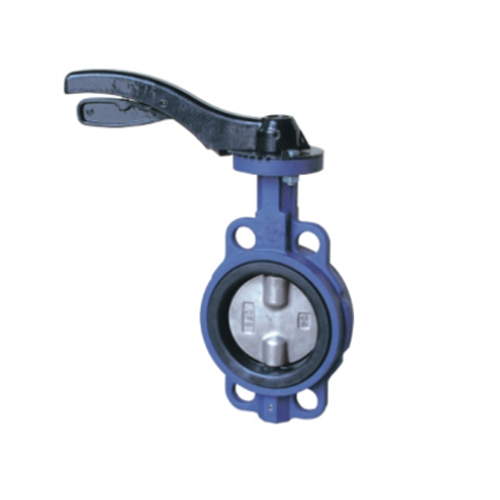
Check Valve Certification Requirements for Export Markets
Introduction
Check valves are critical components in various industries, including oil and gas, water treatment, chemical processing, and power generation. These valves ensure unidirectional flow, preventing backflow and protecting equipment from damage. When exporting check valves to international markets, manufacturers must comply with specific certification requirements to meet regulatory, safety, and quality standards.
This document provides an in-depth analysis of the certification requirements for check valves in major export markets, including North America, Europe, Asia, and the Middle East. Understanding these requirements is essential for manufacturers to ensure compliance, avoid legal issues, and maintain a competitive edge in global trade.
---
1. North American Market Certification Requirements
1.1 United States (USA)
The U.S. has stringent regulations for check valves, particularly in industries such as oil and gas, water supply, and fire protection. Key certifications include:
a. American Petroleum Institute (API) Standards
- API 6D: Specifies requirements for pipeline valves, including check valves, used in the petroleum and natural gas industries.
- API 598: Covers inspection and testing requirements for valves, ensuring leak-tight performance.
- API 607/6FA: Certifies fire-safe performance for valves used in flammable environments.
b. American Society of Mechanical Engineers (ASME) Standards
- ASME B16.34: Defines pressure-temperature ratings, materials, and testing for valves.
- ASME Boiler and Pressure Vessel Code (BPVC): Required for valves used in high-pressure applications.
c. Underwriters Laboratories (UL) & FM Approvals
- UL 312: Covers check valves for fire protection systems.
- FM Approval: Ensures valves meet Factory Mutual (FM) standards for industrial and fire safety applications.
d. NSF/ANSI 61
- Required for check valves used in potable water systems to ensure they do not leach harmful contaminants.
e. U.S. Environmental Protection Agency (EPA)
- Valves used in hazardous material handling must comply with EPA regulations.
1.2 Canada
Canada follows similar standards to the U.S., with additional requirements:
- Canadian Standards Association (CSA):
- CSA B51: Covers pressure vessel and valve safety.
- CSA Z245: For pipeline valves.
- Canadian Registration Number (CRN): Mandatory for valves used in pressure systems.
---
2. European Market Certification Requirements
2.1 European Union (EU)
The EU enforces strict regulations under the Pressure Equipment Directive (PED) 2014/68/EU and Machinery Directive 2006/42/EC. Key certifications include:
a. CE Marking
- Required for check valves sold in the EU, indicating compliance with PED and other directives.
- Valves must undergo Conformity Assessment Modules (e.g., Module H – Full Quality Assurance).
b. EN Standards
- EN 12266: Defines testing standards for industrial valves.
- EN 593: Covers butterfly check valves.
- EN 1074: For valves used in water supply.
c. ATEX Directive 2014/34/EU
- Required for valves used in explosive atmospheres.
d. ISO Standards
- ISO 5208: Specifies leakage classifications for valves.
- ISO 10434: For bolted bonnet steel gate valves.
e. UKCA Marking (Post-Brexit)
- Required for valves sold in the UK, replacing CE marking in some cases.
---
3. Asian Market Certification Requirements
3.1 China
China’s valve certification system is governed by GB (Guobiao) Standards and Market Supervision Administration (SAMR).
a. China Compulsory Certification (CCC)
- Required for certain industrial valves.
- GB/T 12236: Covers steel check valves.
b. Special Equipment License (TSG)
- Mandatory for valves used in pressure systems.
c. API & ASME Adoption
- Many Chinese manufacturers seek API and ASME certifications for export competitiveness.
3.2 India
India follows Bureau of Indian Standards (BIS) and Petroleum and Explosives Safety Organization (PESO) regulations.
a. BIS Certification
- IS 14846: For industrial valves.
- IS 5312: For check valves in pipelines.
b. PESO Certification
- Required for valves used in hazardous environments.
3.3 Japan
- Japanese Industrial Standards (JIS)
- JIS B 2073: For steel check valves.
- JIS B 2002: For general valve testing.
- High-Pressure Gas Safety Act (HPGSA): For valves in gas applications.
3.4 South Korea
- Korean Industrial Standards (KS)
- KS B 1503: For steel check valves.
- KGS (Korean Gas Safety Corporation) Certification: For gas-related valves.
---
4. Middle Eastern Market Certification Requirements
4.1 Saudi Arabia
- Saudi Standards, Metrology and Quality Organization (SASO)
- SASO IEC 60534: For industrial valves.
- Saudi Aramco Standards: Required for oil and gas applications.
4.2 United Arab Emirates (UAE)
- Emirates Authority for Standardization and Metrology (ESMA)
- UAE.S 5019: For industrial valves.
- ADNOC (Abu Dhabi National Oil Company) Standards: For oil and gas valves.
4.3 Qatar
- Qatar General Organization for Standards and Metrology (QGOSM)
- Qatar Petroleum (QP) Standards: For energy sector valves.
---
5. Other Key Certifications for Global Export
5.1 International Organization for Standardization (ISO)
- ISO 9001: Quality management system certification.
- ISO 14001: Environmental management certification.
- ISO 45001: Occupational health and safety.
5.2 API Monogram Program
- Indicates API-certified manufacturers meet strict quality control requirements.
5.3 NACE MR0175/ISO 15156
- For valves used in sour (H₂S) environments.
5.4 SIL (Safety Integrity Level) Certification
- Required for valves used in safety instrumented systems (SIS).
---
6. Testing and Inspection Requirements
To obtain certifications, check valves must undergo rigorous testing, including:
- Pressure Testing (Hydrostatic & Pneumatic)
- Leakage Testing (API 598, EN 12266)
- Fire Testing (API 607, ISO 10497)
- Material Testing (Chemical Composition, Hardness)
- Functional Testing (Opening/Closing Pressure, Flow Rate)
---
7. Conclusion
Exporting check valves requires compliance with diverse certification standards across different markets. Manufacturers must stay updated with evolving regulations, conduct thorough testing, and obtain necessary approvals to ensure market access and customer trust. By adhering to international standards such as API, ASME, PED, and ISO, companies can enhance product reliability, safety, and global competitiveness.
Understanding these certification requirements is crucial for successful market penetration and long-term business growth in the valve industry.
Situs web ini menggunakan cookie untuk memastikan Anda mendapatkan pengalaman terbaik di situs web kami.
Komentar
(0)